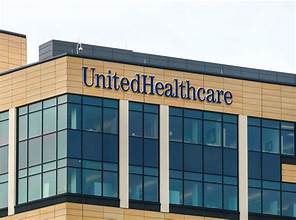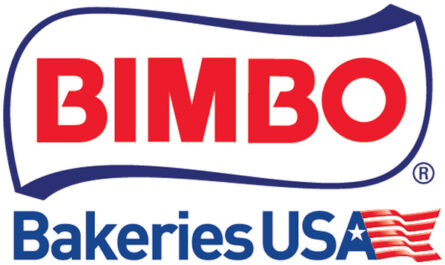Baron Health Care Fund, a prominent player in the healthcare investment landscape, recently made headlines by exiting its position in UnitedHealth Group Incorporated (NYSE: UNH), one of the largest and most influential health insurance companies in the United States. The move sparked widespread interest in financial and investment circles, prompting questions about the reasoning behind the decision and its potential implications. While UnitedHealth continues to be a healthcare powerhouse, Baron’s strategic move highlights the nuanced nature of fund management and the constant evaluation required in portfolio optimization.
A History of Confidence in UNH
Baron Health Care Fund had long viewed UnitedHealth as a valuable asset. The company’s consistent revenue growth, robust earnings, and diversified business model—spanning health insurance, healthcare services through Optum, and pharmacy benefits—had made it a reliable performer in the healthcare sector. Over the years, UnitedHealth had provided investors with strong returns, supported by a growing membership base, strategic acquisitions, and expansion of its health services division.
For a long-term-focused fund like Baron, UnitedHealth aligned well with its investment philosophy. The company’s stable cash flows, innovation in health services, and leadership in managed care made it a low-risk, high-reward holding. However, even the most promising stocks are subject to reevaluation when market conditions, valuation metrics, or risk outlooks evolve.
Valuation Concerns

One of the central reasons cited by Baron Health Care Fund for selling its stake in UNH is valuation. Over the past few years, UnitedHealth stock had experienced significant appreciation. While this was a testament to its strong fundamentals and performance, it also meant that the stock was trading at elevated multiples compared to its historical average.
From a fund manager’s perspective, the potential for future upside becomes limited when a stock becomes fully valued—or overvalued—based on earnings projections and broader market conditions. Baron’s decision to exit likely reflects the view that the company’s future returns, relative to its price, no longer justified its continued inclusion in the fund’s portfolio.
Shifting Market Dynamics
Healthcare is a rapidly evolving sector, and fund managers must continuously assess how macroeconomic trends and policy shifts affect portfolio holdings. In the case of UnitedHealth, regulatory pressures and ongoing political debate about healthcare reform in the U.S. introduce elements of uncertainty. Proposals such as Medicare for All, greater pricing transparency, and tighter scrutiny of managed care organizations could impact margins and long-term profitability.
Baron may have anticipated that future regulatory developments could pose headwinds for large managed care organizations like UNH. Selling now could be a proactive move to mitigate exposure to these emerging risks.
Portfolio Rebalancing Strategy
Another possible reason for the divestment is portfolio rebalancing. Investment funds regularly reassess their asset allocations to maintain an optimal balance between growth, value, risk, and diversification. By selling their stake in UNH, Baron could be freeing up capital to invest in emerging healthcare opportunities with greater growth potential.
Biotechnology, digital health, personalized medicine, and medtech are sectors gaining traction, offering promising innovation pipelines and higher long-term return prospects. It’s possible that Baron’s decision was less about negative sentiment toward UnitedHealth and more about capitalizing on other, potentially more lucrative opportunities.
Performance Optimization

Funds are judged not only on individual stock selections but on overall performance. Exiting from mature holdings that may have plateaued in terms of growth allows fund managers to seek alpha elsewhere. UnitedHealth, despite its strength, may have reached a point where its contribution to the fund’s outperformance was minimal.
To continue delivering competitive returns, Baron Health Care Fund might be recalibrating its strategy toward more aggressive growth assets or underappreciated stocks with turnaround potential. Selling UNH would align with such a strategy shift.
Broader Economic Considerations
Baron’s decision may also reflect concerns about broader economic conditions, such as inflation, rising interest rates, or changing consumer behavior in healthcare consumption. These macro factors can influence the cost structures and profitability of healthcare providers and insurers. Given UnitedHealth’s size and market dominance, any significant economic shift could disproportionately affect its earnings outlook.
Fund Philosophy and Active Management
As an actively managed fund, Baron Health Care Fund doesn’t adhere strictly to passive investing or long-term buy-and-hold strategies. The fund’s approach involves continuously evaluating the health of its investments and making adjustments as needed. The exit from UNH underscores Baron’s commitment to active management and disciplined investing.
It’s a reminder to investors that even top-tier companies are not immune from strategic exits when conditions change. This dynamic is what enables funds like Baron to remain agile and responsive to the ever-shifting investment landscape.
Final Thoughts
The sale of UnitedHealth Group by Baron Health Care Fund is not necessarily a reflection of a lack of faith in the company’s fundamentals. Instead, it signals a thoughtful, forward-looking reassessment of value, risk, and opportunity cost. As investors look to understand the rationale behind such moves, it’s essential to recognize that fund decisions are often rooted in a blend of financial metrics, market outlook, and long-term strategy.
For retail and institutional investors alike, Baron’s decision provides a valuable case study in the importance of portfolio vigilance, even when dealing with historically reliable blue-chip stocks.



